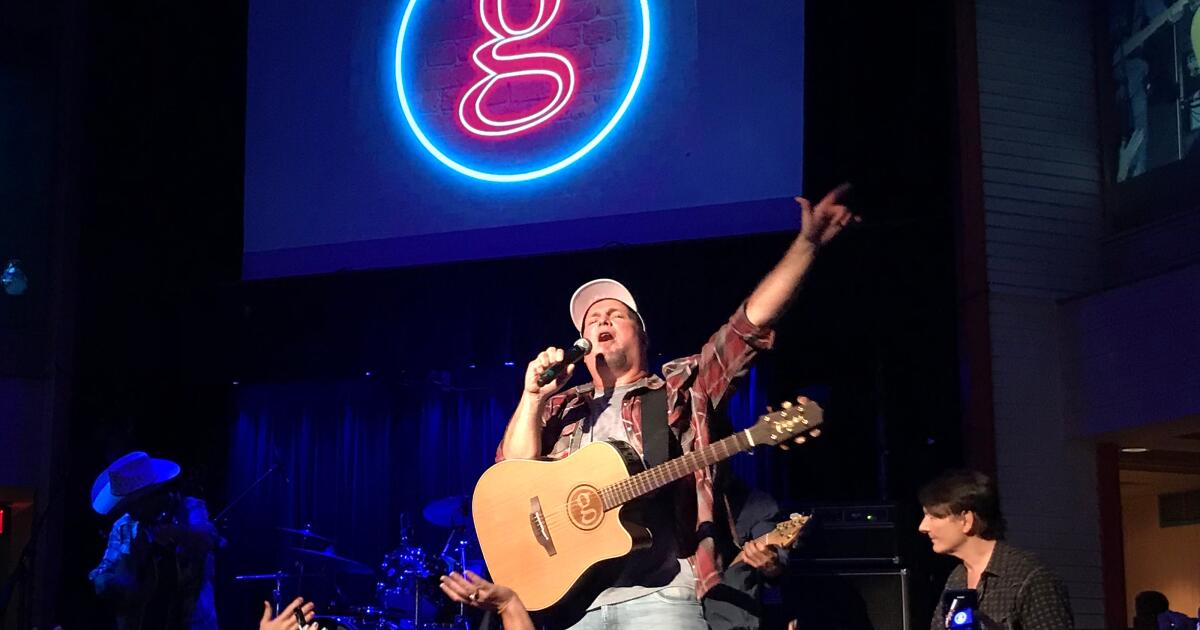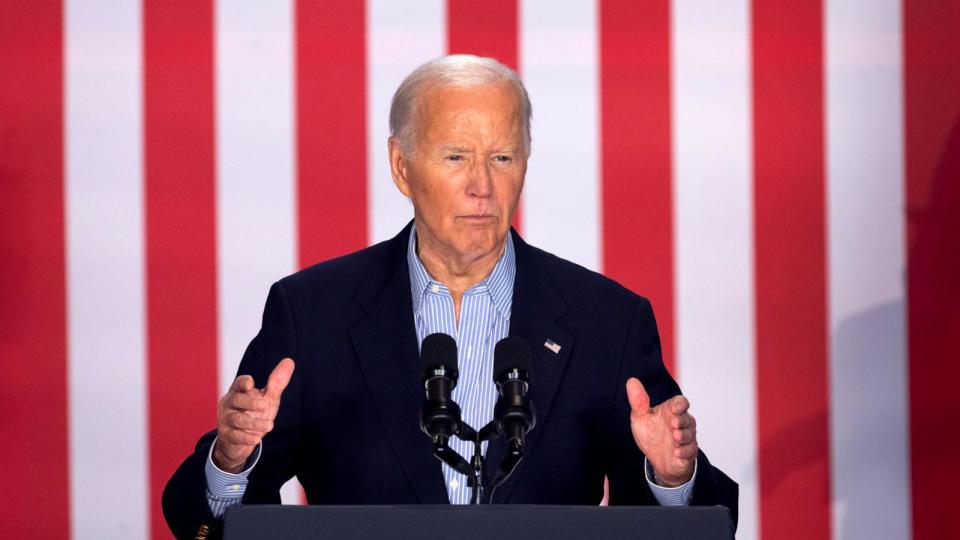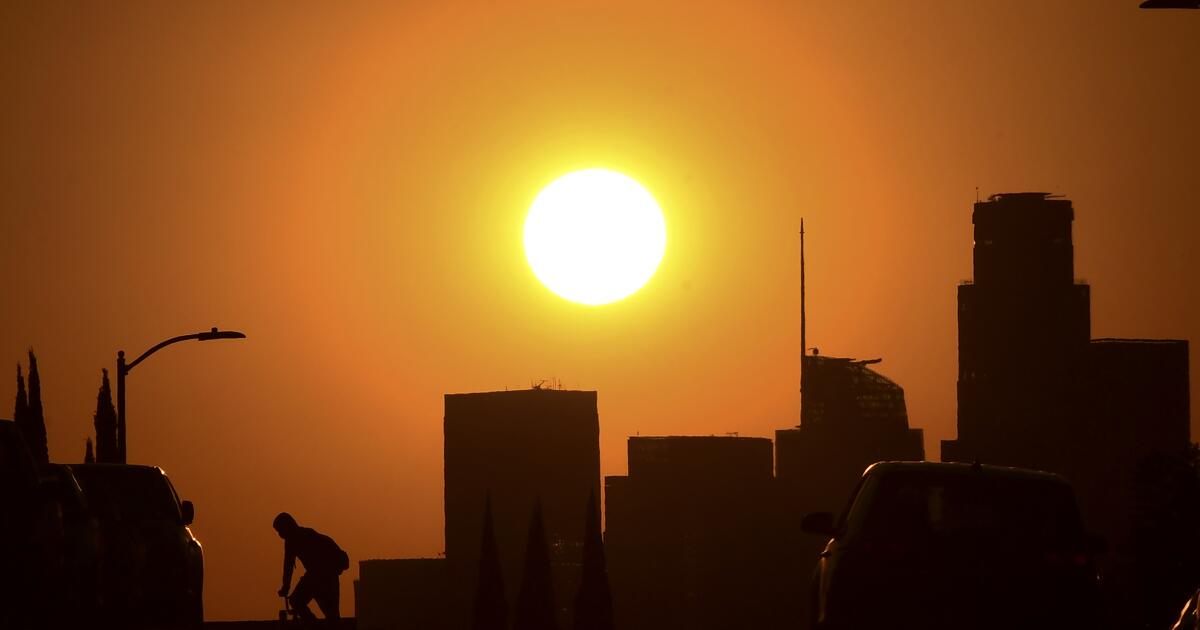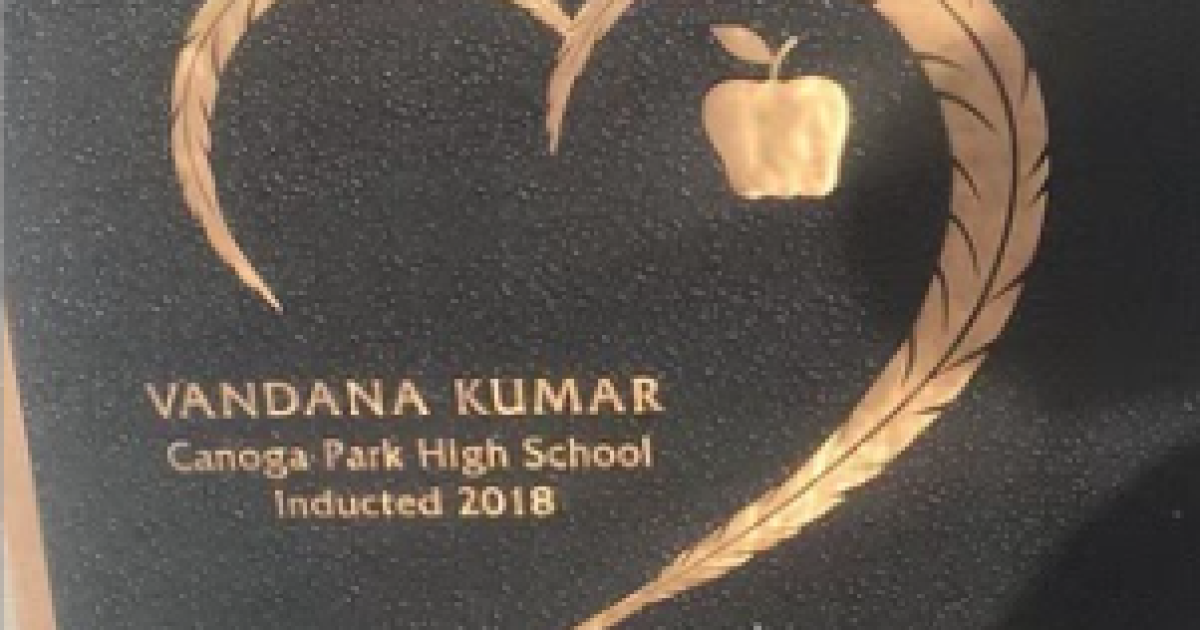World News
EV growth slows in U.S. and California. Can we pick up the pace?

The electric vehicle market is steeped in uncertainty. EV sales growth has slowed; automakers are pulling back on EV production; politics around the subject is growing nasty, as the very idea of driving an EV has entered the culture wars.
But one analyst says don’t fret: “Our long-term outlook for EVs remains bright.”
That’s according to market researcher BloombergNEF, which released the 2024 version of its annual electric vehicle outlook report on Wednesday.
By 2030, according to the report, 45% of global passenger-vehicle sales will be EVs. That number jumps to 73% by 2040 — still short of what the world needs to reach net zero emissions in transportation, the firm says, but enough to achieve major reductions in climate-changing carbon emissions.
The long-term outlook adds a bit of glow to more recent news, especially in the U.S. and in California, where an EV sales slowdown, led by Tesla, has spanned two quarters, challenging the state’s climate goals.
A global survey conducted by consulting firm McKinsey, also released Wednesday, included this shocker: 29% of EV owners told McKinsey they plan to replace the EV they bought with a gasoline or diesel car, a figure that jumps to 38% for U.S. EV owners.
Phillip Kampshoff, who leads McKinsey’s Center for Future Mobility in the Americas, said he’d seen EV sales as “a one way street. Once you buy, you’re hooked on an EV. But that’s not what the data shows.”
Under a 2020 edict by Gov. Gavin Newsom, auto manufacturers must phase out California sales of new fossil fuel cars between now and 2035, when only what the state calls “zero-emission vehicles” will be allowed. (The mandate allows 20% of those vehicles to be plug-in hybrids, which can run on fossil fuels.)
Eleven other states are following California’s lead, although Virginia’s Republican governor plans to drop out by year’s end.
In the U.S., hard-knuckle politics are affecting consumer attitudes toward electric vehicles, as presidential candidate Donald Trump and his supporters in Congress have turned government regulations on emissions technology into a red meat issue for MAGA conservatives. Or, as BloombergNEF more gently puts it: “In the U.S., market jitters inflamed by upcoming presidential elections helped slow down adoption this year.”
Beyond politics, the road to EV growth is chock full of hazards, and different countries are moving at different speeds and with different levels of commitment.
Today, “China, India and France are still showing signs of healthy growth, but the latest data from Germany, Italy and the U.S. is more concerning,” BloombergNEF said. Global EV sales “are set to rise from 13.9 million in 2023 to over 30 million in 2027,” despite the lagging U.S.
Whatever the geography, consumer concerns about price, driving range, battery lifespan, and unreliable public charging continue to dampen many buyers’ enthusiasm for EVs. BloombergNEF’s findings are echoed by consulting firm McKinsey and the AAA motor club, in recent forecasts of their own.
But EV prices are coming down, range is improving, and large numbers of public chargers are being installed, all of which could revive sales growth.
Intent to buy
Consumers around the planet are warming to the idea of buying an electric car, but they’re moving slowly. According to McKinsey, 14% of 30,000 global survey respondents in 2021 said their next vehicle would be an EV. This year, it’s 18%.
In the U.S. it’s a different story, where consumer interest in an EV purchase declined to 18% this year, according to AAA’s survey, down from 23% in 2023. And nearly two-thirds reported they were unlikely to buy an EV next time they buy a car.
Interest in hybrids is on the rise. One in three said they were likely to buy a hybrid, a vehicle that adds a small battery to an internal combustion engine to improve fuel efficiency.
That’s bad news for pure EV sales, at least in the immediate future, said Greg Brannon, head of automotive research at AAA. Early adopters already have their EVs, he said, while mainstream buyers remain skeptical.
Tesla’s sales decline, overcapacity and price cuts, plus the antics of Chief Executive Elon Musk, bode ill for the U.S. market as a whole. “Tesla is a leading indicator of what’s happening in the EV market,” Brannon said. “When we see softening at Tesla, we see softening across the board.”
Major automakers are losing billions of dollars in their EV divisions. Tesla, Mercedes-Benz, General Motors and Ford have all cut back their EV goals for the U.S., at least temporarily. Companies such as Hyundai and Kia, however, aren’t retreating. The market is moving from early adopters to “early majority customers,” Kia CEO Ho Sung Song told Automotive News.
“Once we start going into early majority customers, the speed of transitioning to electrification will be fast,” Song said. “Our commitment remains resolute.”
Global markets
In China, India, and even in France, the picture’s different. China is the world’s largest seller of automobiles of any type, including EVs. The country has managed to make EVs far cheaper than carmakers in the U.S. and in Europe, and they’ve begun a big export push. (The Biden administration is slapping a 100% tariff on China-made EVs to protect domestic manufacturing.)
For the first quarter in China, EV sales were up 37%, according to BloombergNEF. In India, it’s 39%, and in France, 20%. The U.S. was a laggard, up just 4%.
Gliding on the S curve?
Both BloombergNEF and McKinsey said that EV sales appear to be on the flat part of what’s known in business circles as the S curve. Sales of a popular new technology take off fast among early adopters, then glide along flat for awhile as mainstream customers mull their options, and then shoot up again if the mainstream buys in.
McKinsey’s Kampshoff said he personally believes the mainstream will get on board — but maybe not as aggressively as the industry once hoped. The consulting firm has reduced its growth projections for 2030 by 15% to 20% he said.
Still, “while we expect slower adoption, overall, we’re still pretty bullish.”
World News
For sale: A piece of California’s country music history


The famed Buck Owens Crystal Palace, where music legends including Willie Nelson, Dwight Yoakam, Garth Brooks and a young Taylor Swift have played, is up for sale, with the foundation that runs the Bakersfield venue planning to list it for $7 million on Monday.
The nightclub, museum and steakhouse was owned by its namesake Buck Owens, the country music trailblazer who bucked the slick commercial melodies of Nashville for a distinctly West Coast twang. Owens opened the Crystal Palace in 1996, watching it become a premier venue for the biggest names in country music, including himself. Buck and the Buckaroos played there every Friday and Saturday night until his death in 2006.
Jim Shaw, a member of the Buckaroos and a director of the Buck Owens Private Foundation, said that after 28 years of running the famed venue, the Owens family plans to step back and find new owners amid a challenging business climate. The foundation said in a statement that “since Buck’s passing in 2006, we’ve tried to maintain the excellence that he expected, even as it became more and more difficult during these challenging times of increasing food and labor costs.”
The venue is not closing and scheduled events will continue as planned, Shaw said.
“It’s business as usual for now,” Shaw said. “Ideally, someone who wants to keep it exactly as it is will come forward.”
Owens’ youngest son, Johnny Owens, wrote on Facebook that the family’s hope “is that a buyer steps forward with a vision for the future and a reverence” for his father and the Bakersfield Sound.
The Crystal Palace, located on Buck Owens Boulevard, is a major tourism staple for Bakersfield. The 18,000-square-foot venue is next to the city’s downtown entrance.
“It’s the No. 1 tourist attraction in Bakersfield,” Shaw said. “There are people stepping forward and we are waiting to see what happens. I am getting a lot of phone calls. I’m anxious to see what happens.”
World News
2nd local radio host says they were given questions ahead of Biden interview

A second local radio host on Saturday told ABC News that he was provided a list of questions in advance of his interview with President Joe Biden this week.
“Yes, I was given some questions for Biden,” Earl Ingram of CivicMedia told ABC News. Ingram, a prominent host of a Wisconsin radio station, interviewed Biden this week in the wake of his debate performance.
Ingram said he was given five questions and ended up asking four of them.
“I didn’t get a chance to ask him all the things I wanted to ask,” he said.
Ingram is the second interviewer who now says they were provided questions by Biden aides to ask the president this week. Earlier today, another local radio host who interviewed Biden this week told CNN she was given questions to ask Biden before the interview.


“We do not condition interviews on acceptance of these questions, and hosts are always free to ask the questions they think will best inform their listeners,” the Biden campaign told ABC News on Saturday.
Ingram told ABC he didn’t see anything necessarily wrong with the practice. “To think that I was gonna get an opportunity to ask any question to the President of the United States, I think, is a bit more than anybody should expect,” he said.
He continued that he was grateful for the opportunity to interview Biden at all.
“Certainly the fact that they gave me this opportunity … meant a lot to me,” Ingram said.
MORE: Wealthy Democratic donors sound alarm over Biden staying in race
On CNN earlier today, Andrea Lawful-Sanders, the host of WURD’s “The Source,” said Biden officials provided her with a list of eight questions ahead of their interview with Biden.
“The questions were sent to me for approval; I approved of them,” she said.
“I got several questions — eight of them,” she continued. “And the four that were chosen were the ones that I approved.”
Responding to Lawful-Sanders, Biden campaign spokesperson Lauren Hitt said in a statement that it’s not “uncommon” for interviewees to share topics they would prefer. She noted that Lawful-Sanders was “free” to ask any questions she saw fit. She also noted that it was the campaign who sent over the questions and not the White House as other reports claim.
Lawful-Sanders did note in her interview with CNN that she ultimately “approved” the questions provided.
“It’s not at all an uncommon practice for interviewees to share topics they would prefer. These questions were relevant to news of the day – the president was asked about this debate performance as well as what he’d delivered for black Americans,” the statement said.
“We do not condition interviews on acceptance of these questions, and hosts are always free to ask the questions they think will best inform their listeners. In addition to these interviews, the President also participated in a press gaggle yesterday as well as an interview with ABC. Americans have had several opportunities to see him unscripted since the debate.”
A source familiar with the Biden booking operation told ABC News that moving forward they will “refrain” from offering suggested questions to interviewers.
“While interview hosts have always been free to ask whatever questions they please, moving forward we will refrain from offering suggested questions.”
2nd local radio host says they were given questions ahead of Biden interview originally appeared on abcnews.go.com
World News
President George W. Bush turns 78 years old


George W. Bush, born on July 6, 1946, in New Haven, Connecticut, was the 43rd President of the United States.
Bush was born to parents Barbara Bush and former President George H. W. Bush. He has five siblings; Jeb Bush, Marvin Bush, Neil Bush, Dorothy Bush Koch and Pauline Robinson Bush. Pauline was diagnosed with leukemia and passed away at age three.
He was formerly the Republican Governor of Texas from 1995 to 2000.
WHY FORMER PRESIDENT GEORGE W. BUSH IS WINNING … THE POST-PRESIDENCY
Bush was first elected to the White House in November 2000, and officially began his first term as president in January 2001, after he defeated Democrat Al Gore during the presidential election. Bush was reelected to his second term as the incumbent in November 2004, when he prevailed over Democrat John Kerry, and led the United States until January 2009 before handing over his torch to former President Barack Obama.
Bush married Laura Bush on November 5, 1977, the day after her 31st birthday, in her hometown of Midland, Texas. The couple were engaged in September 1977, and married less than two months later in a Methodist church. Bush and Laura met at a barbecue, and he took her to play mini-golf on their first date.
The Bush’s share twin daughters, Barbara Pierce Bush and Jenna Bush Hager, born on November 25, 1981. Today, the couple also share four grandchildren; Mila, Poppy, Hal and Cora.
GEORGE BUSH, FORMER FIRST LADY ISSUE STATEMENT ON AFGHANISTAN WITH MESSAGE TO US TROOPS, VETERANS
During his presidency, Bush cared for his English springer spaniel, Spot Fetcher, who accompanied him to meetings in the Oval Office and on adventures throughout the White House. The dog was born to his parent’s dog, Millie.
On September 11, 2001, less than one year into Bush’s presidency, the Twin Towers in New York City were attacked by terrorists when airplanes hit both buildings, causing a collapse and thousands of lives lost. At the time, Bush was reading to elementary-aged children at a school in Sarasota, Florida. He was calmly and quietly advised of the attacks and quickly returned to Washington, where he was briefed alongside Vice President Dick Cheney.
Bush was regarded highly for his poise while learning of the attacks and for his demonstration of patriotism and leadership in the uncertain days and weeks following the hijackings of multiple planes on the day that shook America to her core.
SADDAM CAPTURED ‘LIKE A RAT’ IN RAID
On December 30, 2003, during Bush’s first term as POTUS, Saddam Hussein, the Iraqi leader and executor of the 9/11 attacks on the U.S., was captured by the American military.
In the early morning of December 30, 2006, during Bush’s presidency, Hussein was hanged and executed for his crimes against humanity. Americans across the nation celebrated the death of Hussein and applauded Bush for promising the country he would take him out and following through.
While Bush was regarded for his dealings with the terrorist attacks, the signing of No Child Left Behind Act and the Patriot Act and the creation of the United States Department of Homeland Security, many Americans were unhappy with the sanctions of interrogation techniques, the war in Iraq and taxes while he was president.
CLICK HERE TO GET THE FOX NEWS APP
-

 African History5 years ago
African History5 years agoA Closer Look: Afro-Mexicans 🇲🇽
-

 African History5 months ago
African History5 months agoBlack History Facts I had to Learn on My Own pt.6 📜
-

 African History5 years ago
African History5 years agoA Closer Look: Afro-Mexicans 🇲🇽
-

 African History1 year ago
African History1 year agoMajor African Tribes taken away during the Atlantic Slave Trade🌍 #slavetrade #africanamericanhistory
-

 African History1 year ago
African History1 year agoCameroon 🇨🇲 World Cup History (1962-2022) #football #realmadrid #shorts
-

 African History5 months ago
African History5 months agoBlack History Inventors: Mary Kenner 🩸
-

 African History1 year ago
African History1 year agoPROOF AFRICAN AMERICANS AIN'T FROM AFRICA DOCUMENTED EVIDENCE
-

 African History1 year ago
African History1 year agoNo African pre-Columbus DNA? 🤯🤯 #history #mesoamerica #mexico #african




























